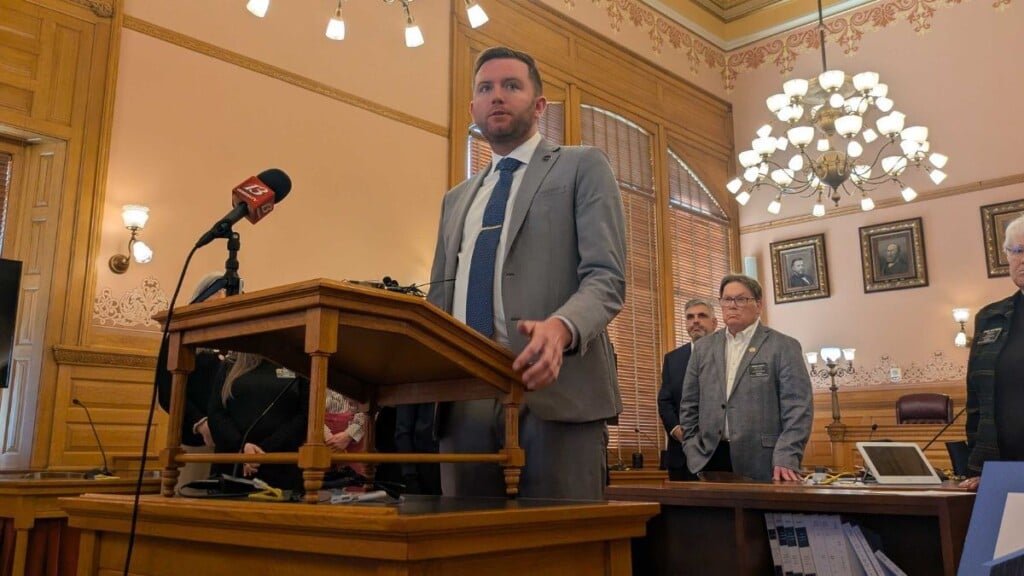Mission City Council turns the screws on Mission Gateway developer, tacks on a $12 million assessment on undeveloped property

Debbie Kring, a Mission councilwoman since 1999, remembers the first time that Mission Gateway developer Tom Valenti came before the council dais nearly a decade ago to propose a grand idea to replace the Mission Center Mall.
“I had such high hopes for him,” Kring said on Wednesday night.
And now?
“I’m just totally disappointed right now,” Kring said.
Kring heard a bunch of messages from Valenti on her voicemail this week. She didn’t return any of them.
Kring’s mood seemed to reflect a shift in Mission’s attitude toward Valenti, the purveyor of the evermore stalled Mission Gateway project at Shawnee Mission Parkway and Johnson Drive. The Mission City Council unanimously passed an ordinance that slaps a $600,000 annual property assessment on Valenti’s Gateway tax bill.
The vote establishes a 20-year time frame for the city to recoup $12 million it spent in 2007 on stormwater improvements to ready the land for Valenti to get to work.
As has been well-documented at this point, Valenti has produced nothing at the Gateway site, aside from a long list of excuses.
Valenti wasn’t at the council meeting last night, a fact that further disappointed Kring and possibly other councilmembers. Instead, he sent his Polsinelli lawyer Korb Maxwell to try to stave off the assessment.
Maxwell said Valenti is working on another development plan after realizing that his last appearance in November to present an entirely ordinary Wal-Mart-anchored strip mall hit the public’s ears with a thud.
Maxwell’s appearance sounded less like a request for forgiveness and more like a confrontation with the city, telling the council that the assessment could complicate the progress of the development.
“Unfortunately, actions like imposing these assessments are taking time, effort, energy and resources away from focusing on a revised plan,” Maxwell said.
It’s not unreasonable to wonder whether the assessment is less of a distraction, as Maxwell seemed to describe, and more of a serious dent in the financial solvency of Valenti’s plan.
The Mission City Council could be forgiven for not buying what Maxwell or his client was selling, particularly when the council learned from City Administrator Laura Smith later in the meeting that Valenti is behind on his current property-tax bill. (Valenti is also being sued for not paying his engineer, and the Gateway property has nearly $2 million in mechanic’s liens for unpaid bills.)
Not paying taxes on time, coupled with abandoning a previous deal in which the city would be repaid a portion of its $12 million investment upfront once development got started, isn’t the way to endear the city to one’s demands.
The whole situation is reminiscent, in a way, to the demise of the Wonderful World of Oz project from the late 1990s and early aughts. In that deal, Los Angeles lawyer Robert Kory seemed to treat local elected officials like unsophisticated hayseeds when he presented grandiose plans for an expensive theme park, but was always opaque about his financing.
Local officials were patient with Kory’s shenanigans up until the time the public learned that Kory had stiffed Wyandotte County on half a million dollars he owed when the project was supposed to be built there. The revelation even soured officials in Johnson County, where Kory later tried to build the Oz project at the Sunflower Army Ammunition Plant.
The lesson: Local city councils competing for development will offer developers plenty of patience, but not when they feel like that developer is monkeying around with their money.
As one Mission resident said Wednesday night, “Even God’s patience eventually runs out.”




